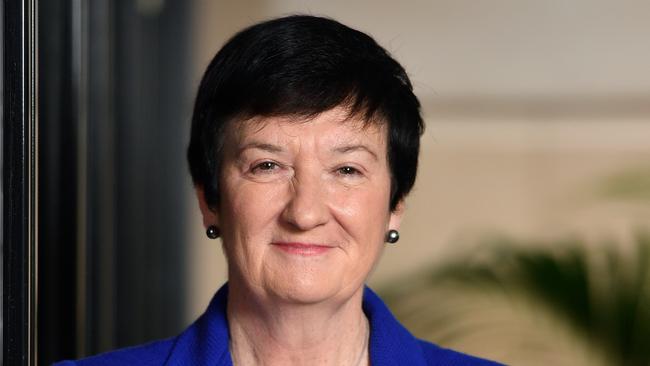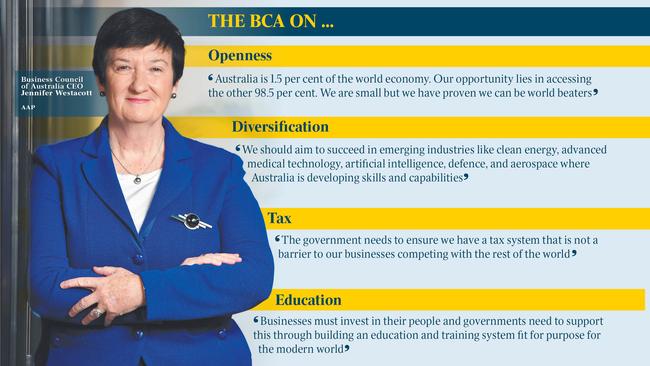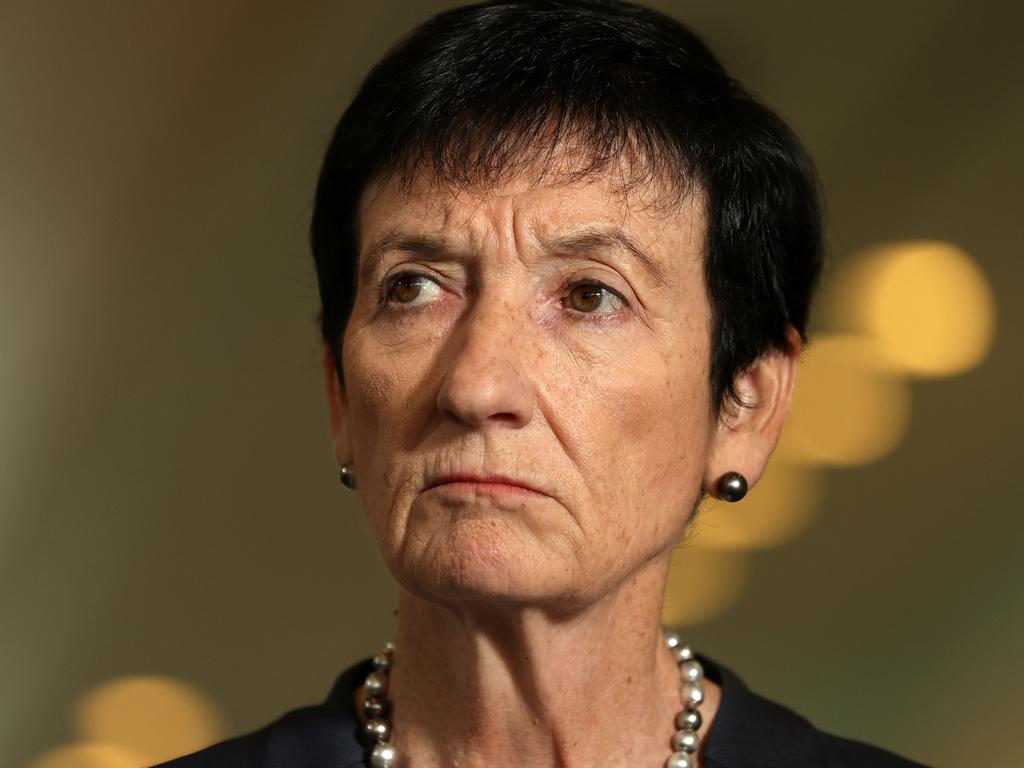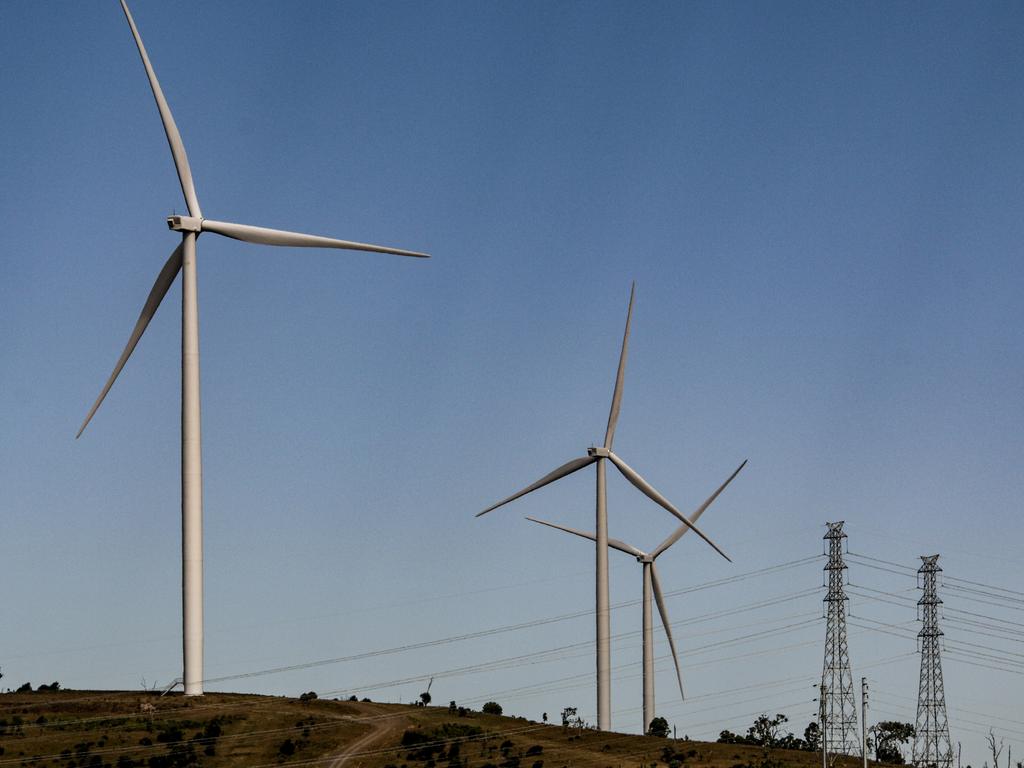Business plans way forward towards a vibrant economy
In a six-tiered blueprint, the Business Council of Australia calls for a modern tax regime.

Big business is firing up voter expectations of a $10,000 income boost through a bold action plan to break political gridlock and create a bigger, more diverse and competitive economy.
In a six-tiered policy blueprint released on Wednesday, the Business Council of Australia calls for a modern tax regime, export diversification, open borders, educational excellence, reduced social disadvantage, a robust federation and a clear path to net zero emissions by 2050.
A relentless pursuit of incremental reforms to raise productivity would lift the economy and leave average workers better off by $10,000 a year by the end of the decade, the BCA said.
Even before the pandemic, the business lobby argues, the nation’s income engine was broken, taking an average of seven years to generate a $100 a fortnight pay hike for the average worker; in the past, workers were getting that size rise every year or two.
But a bipartisan, broadbased reform compact would shift Australia out of its comfort zone to deliver world-beating growth and prosperity.
The Living On Borrowed Time discussion paper, which is the starting point for nationwide BCA community consultations, follows the release of Treasury’s Intergenerational Report on Monday, which projected 40 years of unbroken deficits, rising health and welfare costs, slower growth and an ageing population on a no-change policy basis.
BCA chief executive Jennifer Westacott said the political class must seek consensus changes that prepare Australia for a future shaped by disruptive structural forces, such as digitisation, the rise of Asia, geopolitical volatility, supply-chain innovation and decarbonisation.
“What’s the next election about? Is it about the kind of country we’re going to be or is it going to be about all the things we’re not going to do?” Ms Westacott said. “The IGR puts an incredible set of numbers before us and I think anyone who thinks we can just stay where we are is incredibly naive.”
She said a repeat of the 2019 election contest would be “a tremendous let-down of the Australian people”. “It would be irresponsible to just sleepwalk into the slow lane when we actually have the opportunity and choices to make,” she said.
The BCA said Australia faced long-term economic and social decline, with a trillion-dollar debt, stagnant incomes and population growth, and a tax system that will struggle to meet emerging spending demands on health, age pensions and disability services.
Rather than simply announcing 50 policy ideas, Ms Westacott said the BCA was “trying to build consensus about the direction we’re trying to head in and what are some of the shifts to get there”.

“If we can have that conversation about some of those bigger shifts then, the policy menu that comes out is less contested,” she said.
For instance, if we could get convergence on the need for productivity-led growth, “then the detail about the ‘how’ kind of naturally falls out of it”.
Alluding to the reform era of the 1980s and ’90s, Ms Westacott said, “big bang theory doesn’t have to be a single shot at something”.
Citing the competition reforms of the ’90s, which added 2 per cent to GDP, the BCA chief said reform can be small things with big impacts, albeit under an “organised umbrella”.
“There’s still a lot of low-lying fruit particularly in the regulatory space that has huge impact on innovation, on confidence and on the willingness to invest,” Ms Westacott said.
The paper notes “a lot of our eggs are in one basket”. More than half of our exports are in six products: iron ore, coal, natural gas, tourism, education and gold. Australia’s top five companies are essentially the same as they were 35 years ago, while in the US the baton has been passed from Big Oil and Detroit to the tech titans.
The BCA argues the nation must build on its strengths in mining and agriculture, but diversify to take advantage of modern, extended, specialised supply chains. “We should aim to succeed in emerging industries like clean energy, advanced medical technology, artificial intelligence, defence, and aerospace where Australia is developing skills and capabilities,” the paper said.
The BCA said to build skills, “businesses must invest in their people and governments need to support this through building an education and training system fit for purpose for the modern world”.
For social cohesion and prosperity, the paper said “we need to break the cycle of entrenched disadvantage”. “Opportunity needs to be shared across the country, which means making the most of the potential of regions.”
Ms Westacott said the BCA would talk to Australians “outside the (Canberra) bubble” to gain support for its agenda.








To join the conversation, please log in. Don't have an account? Register
Join the conversation, you are commenting as Logout